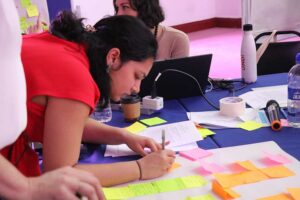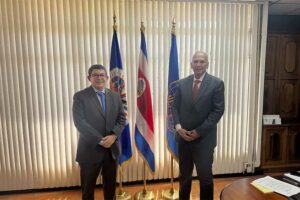Trinational Diploma Program that Strengthens Agricultural and Forestry SMEs in the Trifinio Region Concludes
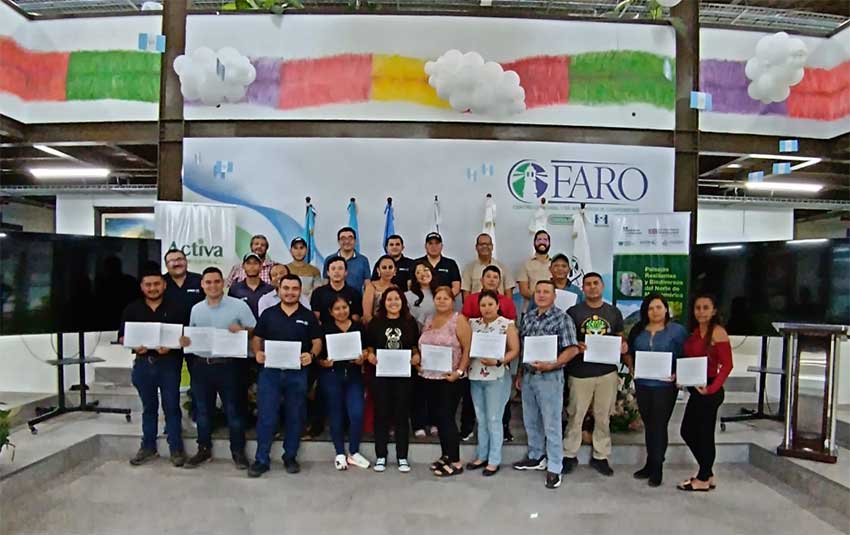
- With the participation of producers and community leaders from Guatemala, Honduras, and El Salvador, the specialized training program in business management, finance, and community governance was concluded
With the official awarding of diplomas and the participation of representatives from the three countries that make up the Trifinio region, the Diploma Program on Capacity Building for the Strengthening of Agricultural and Forestry Small and Medium-Sized Enterprises was concluded. The program was promoted within the framework of the Resilient and Biodiverse Landscapes of Northern Mesoamerica Project, an initiative of the Biodiverse Landscapes Fund (BLF) of the United Kingdom.
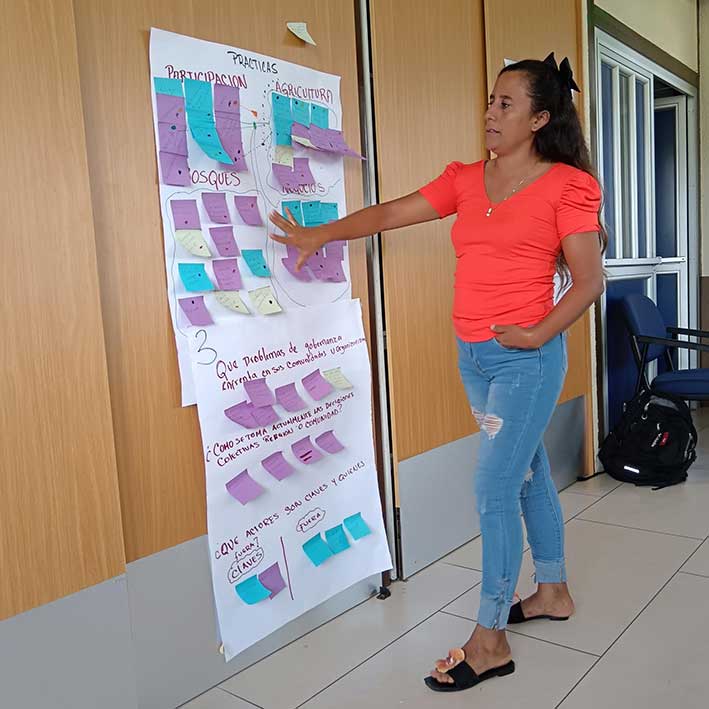
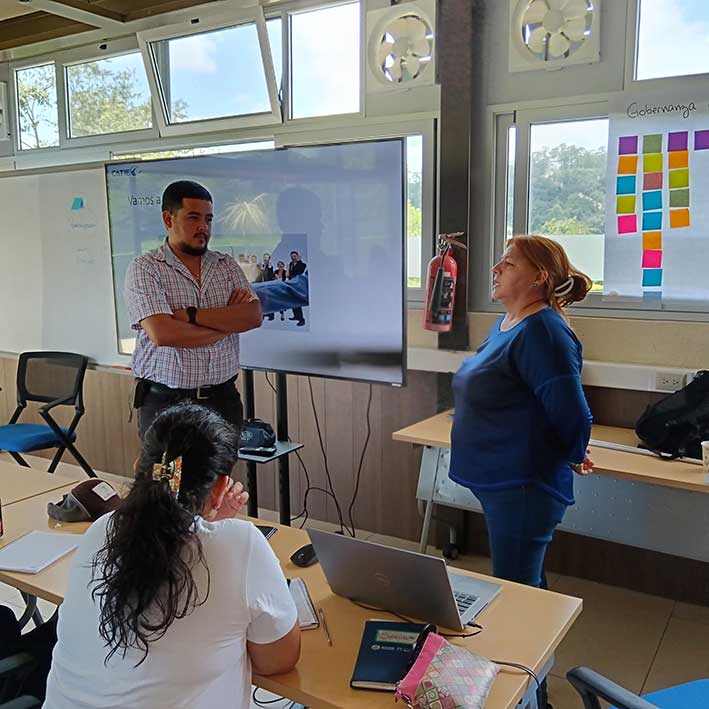
The last module, entitled “Business Management, Finance, and Community Governance Associated with Enterprises,” brought together for four days producers of coffee, vegetables, honey, tamarind, and other products, as well as representatives of local organizations and the Trifinio Plan. The training was carried out under the learn-by-doing methodology, combining theory and participatory practices.
“This diploma program is aimed at strengthening knowledge of all the processes that take place within the productive area and within the business area. I believe it is of great interest and is oriented toward a change in attitude to align, in the three participating countries, knowledge and effort toward a better standard of living,” said César Beltetón, National Executive Director for Guatemala of the Trifinio Plan.
In total, 24 people (11 women and 13 men) strengthened their knowledge in models of community organization, transparency in management, cost analysis, budget preparation, access to financing, and sustainability certifications. According to the final evaluation, the training received an average rating of 4.7 out of 5, highlighting its practical usefulness for local enterprises.
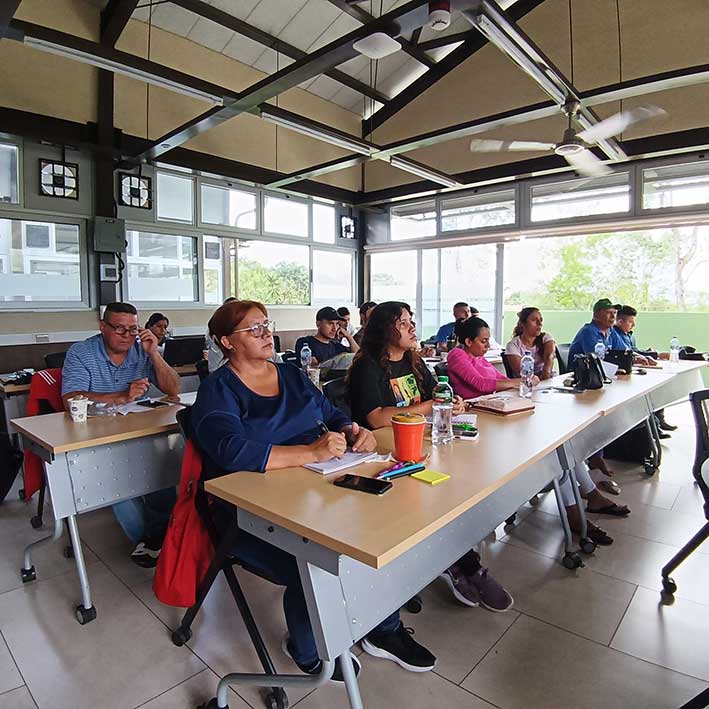
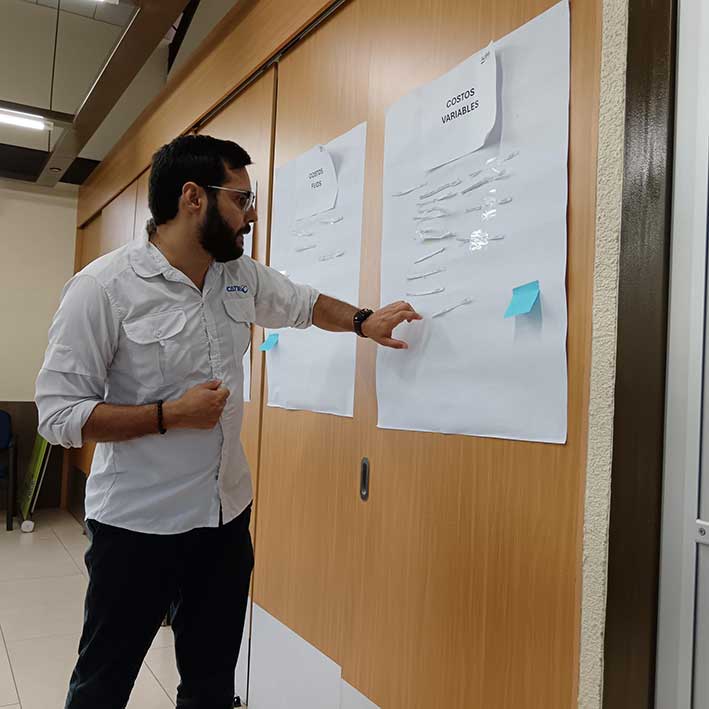
After the training process, the impact was also reflected in the voices of the participants. “For me, it was an honor to be in these trainings, to be able to practice the knowledge in the community and share the learnings with other women,” said Susana Ramos, a vegetable producer.
The applied approach allowed participants to build tools directly linked to their businesses. “With these trainings we gained knowledge that we can apply to make a difference. I am a beekeeper, and they helped me put into practice actions such as the business plan; in addition, we realized the need to create a marketing cooperative in our municipality, with more than 50 producers,” commented Edvin Ventura, a honey and tamarind producer.
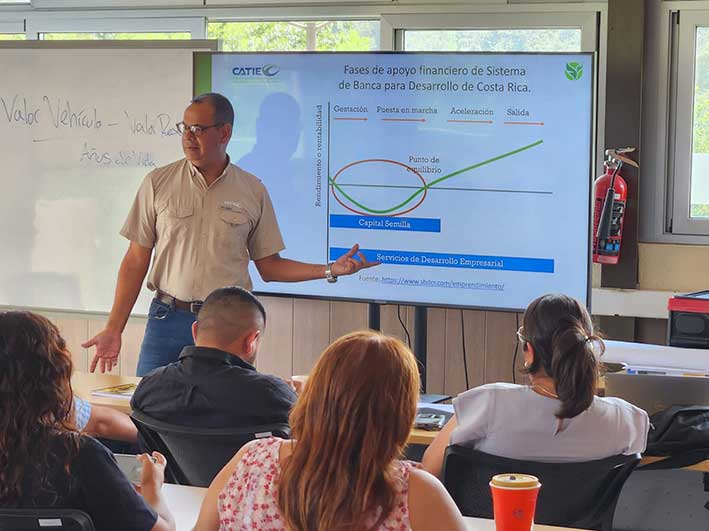
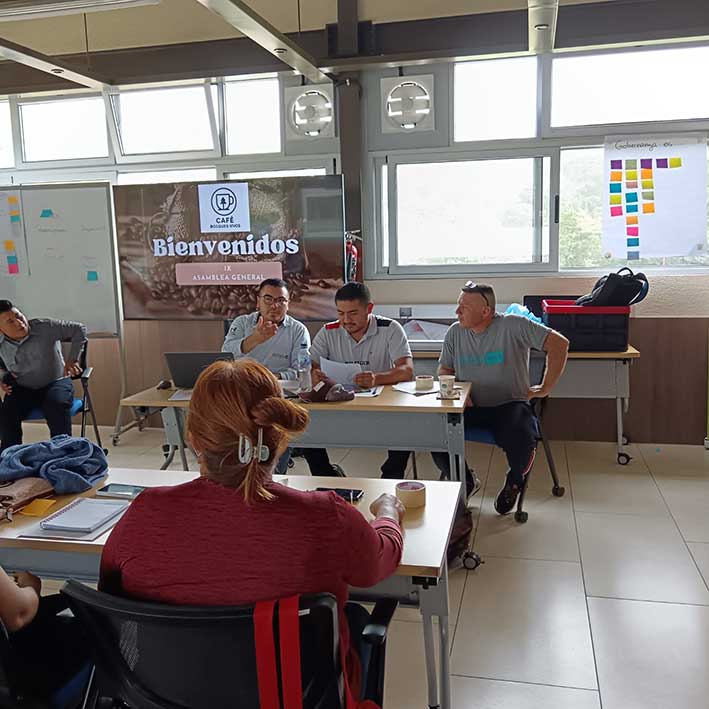
The official closing included remarks by Beltetón; Gerson Alvarado, representing WCS; and Carlos Castillo from COOSAJO, the organization that provided logistical support through the FARO Cooperative Cultural and Learning Center. Certificates were also presented to the participants, recognizing their efforts to move toward a rural enterprise model with triple impact: economic, social, and environmental.
“With this closure, the specialized training program concludes its first edition, with a view to continuing to strengthen capacities in the region and open financing and sustainability opportunities for agricultural and forestry SMEs in northern Mesoamerica,” said Vladimir Valera, professor-researcher in the Forests and Biodiversity in Productive Landscapes Unit at CATIE.
The Resilient and Biodiverse Landscapes of Northern Mesoamerica Project is implemented by the Wildlife Conservation Society (WCS) and CATIE (Tropical Agricultural Research and Higher Education Center), in collaboration with the Trinational Commission of the Trifinio Plan (CTPT) and local partners.
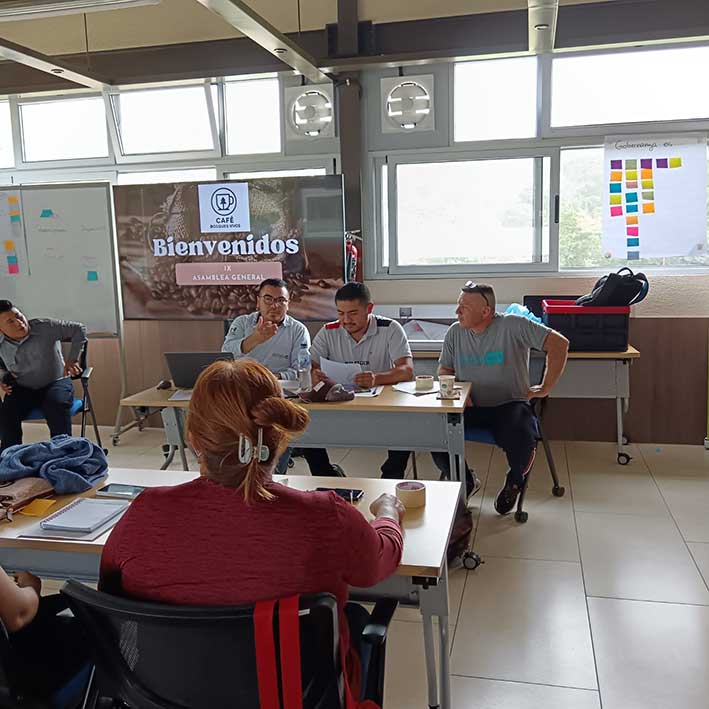
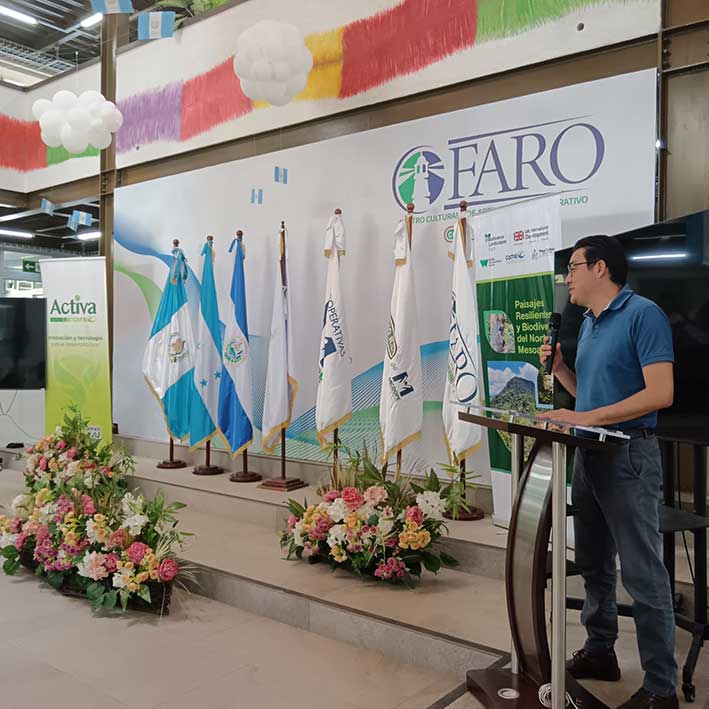
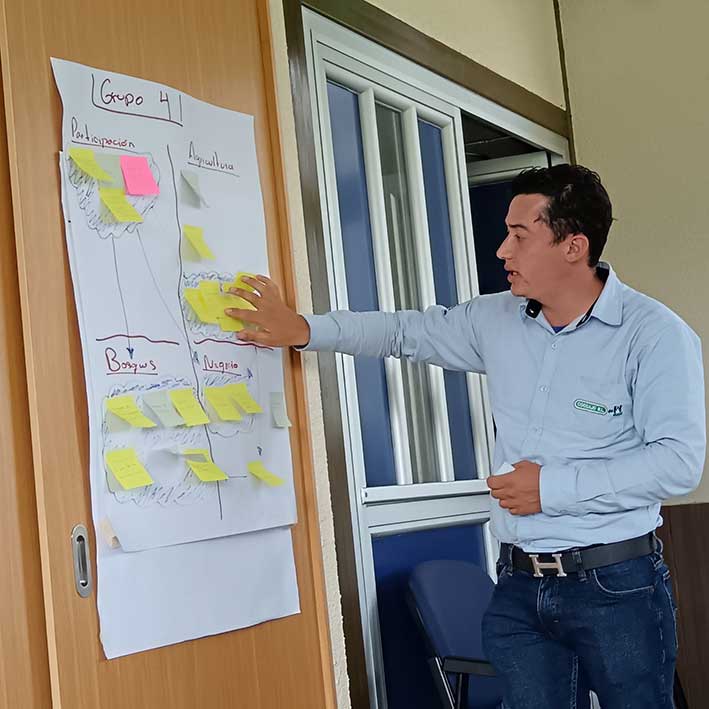
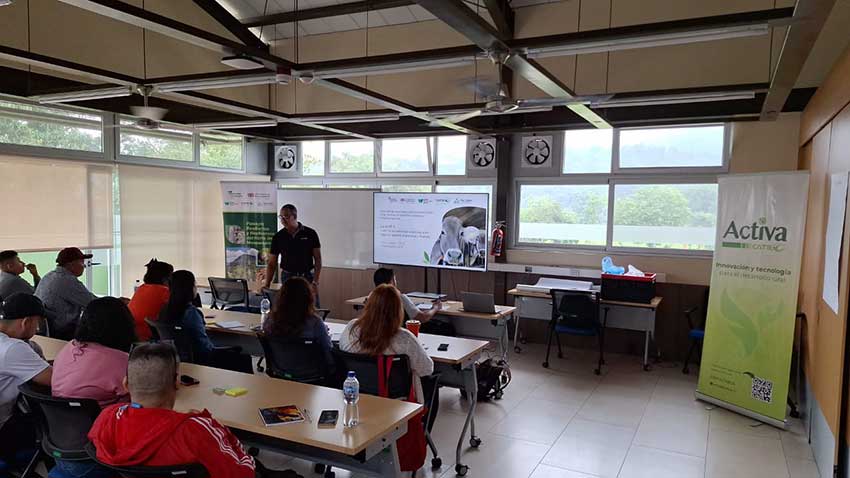
More information:
Alejandra Martínez-Salinas
Coordinator
Forests and Biodiversity in Productive Landscapes Unit
CATIE
amartinez@catie.ac.cr
Vladimir Valera
Professor-Researcher
Director ACTIVA-CATIE
Forests and Biodiversity in Productive Landscapes Unit
CATIE
vladimir.valera@catie.ac.cr
Written by:
Karla Salazar Leiva
Communicator
Communications and Marketing Office
CATIE
karla.salazar@catie.ac.cr
Tag:agricultura, forestal, pymes, Trifinio

